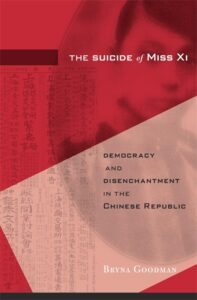 Speculative Enterprise: Public Theaters and Financial Markets in London, 1688-1763, by Mattie Burkert (University of Virginia Press, 2021, 296 pages). “In the wake of the 1688 revolution, England’s transition to financial capitalism accelerated dramatically. Londoners witnessed the rise of credit-based currencies, securities markets, speculative bubbles, insurance schemes, and lotteries. Many understood these phenomena in terms shaped by their experience with another risky venture at the heart of London life: the public theater. Speculative Enterprise traces the links these observers drew between the operations of Drury Lane and Exchange Alley, including their hypercommercialism, dependence on collective opinion, and accessibility to people of different classes and genders. Mattie Burkert identifies a discursive “theater-finance nexus” at work in plays by Colley Cibber, Richard Steele, and Susanna Centlivre as well as in the vibrant eighteenth-century media landscape. As Burkert demonstrates, the stock market and the entertainment industry were recognized as deeply interconnected institutions that, when considered together, illuminated the nature of the public more broadly and gave rise to new modes of publicity and resistance. In telling this story, Speculative Enterprise combines methods from literary studies, theater and performance history, media theory, and work on print and material culture to provide a fresh understanding of the centrality of theater to public life in eighteenth-century London.” —from the publisher
Speculative Enterprise: Public Theaters and Financial Markets in London, 1688-1763, by Mattie Burkert (University of Virginia Press, 2021, 296 pages). “In the wake of the 1688 revolution, England’s transition to financial capitalism accelerated dramatically. Londoners witnessed the rise of credit-based currencies, securities markets, speculative bubbles, insurance schemes, and lotteries. Many understood these phenomena in terms shaped by their experience with another risky venture at the heart of London life: the public theater. Speculative Enterprise traces the links these observers drew between the operations of Drury Lane and Exchange Alley, including their hypercommercialism, dependence on collective opinion, and accessibility to people of different classes and genders. Mattie Burkert identifies a discursive “theater-finance nexus” at work in plays by Colley Cibber, Richard Steele, and Susanna Centlivre as well as in the vibrant eighteenth-century media landscape. As Burkert demonstrates, the stock market and the entertainment industry were recognized as deeply interconnected institutions that, when considered together, illuminated the nature of the public more broadly and gave rise to new modes of publicity and resistance. In telling this story, Speculative Enterprise combines methods from literary studies, theater and performance history, media theory, and work on print and material culture to provide a fresh understanding of the centrality of theater to public life in eighteenth-century London.” —from the publisher
 Stories That Make History: Mexico through Elena Poniatowska’s Crónicas, by Lynn Stephen (Duke University Press, 2021, 328 pages). “From covering the massacre of students at Tlatelolco in 1968 and the 1985 earthquake to the Zapatista rebellion in 1994 and the disappearance of forty-three students in 2014, Elena Poniatowska has been one of the most important chroniclers of Mexican social, cultural, and political life. In Stories That Make History, Lynn Stephen examines Poniatowska’s writing, activism, and political participation, using them as a lens through which to understand critical moments in contemporary Mexican history. Through her crónicas—narrative journalism written in a literary style featuring first-hand testimonies—Poniatowska told the stories of Mexico’s most marginalized people. Throughout, Stephen shows how Poniatowska helped shape Mexican politics and forge a multigenerational political community committed to social justice. In so doing, she presents a biographical and intellectual history of one of Mexico’s most cherished writers and a unique history of modern Mexico.” —from the publisher
Stories That Make History: Mexico through Elena Poniatowska’s Crónicas, by Lynn Stephen (Duke University Press, 2021, 328 pages). “From covering the massacre of students at Tlatelolco in 1968 and the 1985 earthquake to the Zapatista rebellion in 1994 and the disappearance of forty-three students in 2014, Elena Poniatowska has been one of the most important chroniclers of Mexican social, cultural, and political life. In Stories That Make History, Lynn Stephen examines Poniatowska’s writing, activism, and political participation, using them as a lens through which to understand critical moments in contemporary Mexican history. Through her crónicas—narrative journalism written in a literary style featuring first-hand testimonies—Poniatowska told the stories of Mexico’s most marginalized people. Throughout, Stephen shows how Poniatowska helped shape Mexican politics and forge a multigenerational political community committed to social justice. In so doing, she presents a biographical and intellectual history of one of Mexico’s most cherished writers and a unique history of modern Mexico.” —from the publisher
 Indigenous Women and Violence, edited by Lynn Stephen and Shannon Speed (University of Arizona Press, 2021, 280 pages). “Indigenous Women and Violence offers an intimate view of how settler colonialism and other structural forms of power and inequality created accumulated violences in the lives of Indigenous women. This volume uncovers how these Indigenous women resist violence in Mexico, Central America, and the United States, centering on the topics of femicide, immigration, human rights violations, the criminal justice system, and Indigenous justice. Taking on the issues of our times, Indigenous Women and Violence calls for the deepening of collaborative ethnographies through community engagement and performing research as an embodied experience. This book brings together settler colonialism, feminist ethnography, collaborative and activist ethnography, emotional communities, and standpoint research to look at the links between structural, extreme, and everyday violences across time and space.” —from the publisher
Indigenous Women and Violence, edited by Lynn Stephen and Shannon Speed (University of Arizona Press, 2021, 280 pages). “Indigenous Women and Violence offers an intimate view of how settler colonialism and other structural forms of power and inequality created accumulated violences in the lives of Indigenous women. This volume uncovers how these Indigenous women resist violence in Mexico, Central America, and the United States, centering on the topics of femicide, immigration, human rights violations, the criminal justice system, and Indigenous justice. Taking on the issues of our times, Indigenous Women and Violence calls for the deepening of collaborative ethnographies through community engagement and performing research as an embodied experience. This book brings together settler colonialism, feminist ethnography, collaborative and activist ethnography, emotional communities, and standpoint research to look at the links between structural, extreme, and everyday violences across time and space.” —from the publisher
 Japan on American TV: Screaming Samurai Form Anime Clubs in the Land of the Lost by Alisa Freedman (Columbia University Press, 2021, 168 pages). “Japan on American TV explores political, economic, and cultural issues underlying depictions of Japan on U.S. television comedies and the programs they inspired. Since the 1950s, U.S. television programs have taken the role of “curators” of Japan, displaying and explaining selected aspects for viewers. Beliefs in U.S. hegemony over Japan underpin this curation process. Japan on American TV takes a historical perspective to understand the diversity of Japan parodies and examines six main categories of television portrayals representing different genres and comedic forms: (1) stereotypes of judo instructors (1950s and 1960s); (2) samurai parodies (prevalent in the 1970s); (3) the Bubble Economy Era in Sesame Street’s Big Bird in Japan (1988); (4) “Cool Japan” parodies (1990s through the present); (5) eager fans in sketch series (2010s); and (6) makeover reality shows (2019). These examples show changing patterns of cultural globalization and perpetuate national stereotypes while verifying Japan’s international influence. Television presents an alternative history of American fascinations with and fears of Japan.” —from the publisher
Japan on American TV: Screaming Samurai Form Anime Clubs in the Land of the Lost by Alisa Freedman (Columbia University Press, 2021, 168 pages). “Japan on American TV explores political, economic, and cultural issues underlying depictions of Japan on U.S. television comedies and the programs they inspired. Since the 1950s, U.S. television programs have taken the role of “curators” of Japan, displaying and explaining selected aspects for viewers. Beliefs in U.S. hegemony over Japan underpin this curation process. Japan on American TV takes a historical perspective to understand the diversity of Japan parodies and examines six main categories of television portrayals representing different genres and comedic forms: (1) stereotypes of judo instructors (1950s and 1960s); (2) samurai parodies (prevalent in the 1970s); (3) the Bubble Economy Era in Sesame Street’s Big Bird in Japan (1988); (4) “Cool Japan” parodies (1990s through the present); (5) eager fans in sketch series (2010s); and (6) makeover reality shows (2019). These examples show changing patterns of cultural globalization and perpetuate national stereotypes while verifying Japan’s international influence. Television presents an alternative history of American fascinations with and fears of Japan.” —from the publisher
 The White Devil, by John Webster (1612), edited by Lara Bovilsky (Bloomsbury, 2021, 224 pages). “This fully re-edited, modernised play text is accompanied by insightful commentary notes, while its lively introduction explains why Webster’s interests in complex female lead characters and questions of social tension related to sexuality, gender, race, and law and equity—unusual for the play’s time—have led to its increasing relevance for modern audiences and readers. Exploring the challenges of staging this highly melodramatic play, Lara Bovilsky guides you through the most interesting points of its rich performance history, and explores the onslaught of recent productions with race-conscious and regendered casts. Analysing its masterful poetry, she shows how the work can be harnessed to engage debate about the abuse of political and religious authority, the troubling fruits of economic desperation, and personal freedom, and empowers you to do likewise.” —from the publisher
The White Devil, by John Webster (1612), edited by Lara Bovilsky (Bloomsbury, 2021, 224 pages). “This fully re-edited, modernised play text is accompanied by insightful commentary notes, while its lively introduction explains why Webster’s interests in complex female lead characters and questions of social tension related to sexuality, gender, race, and law and equity—unusual for the play’s time—have led to its increasing relevance for modern audiences and readers. Exploring the challenges of staging this highly melodramatic play, Lara Bovilsky guides you through the most interesting points of its rich performance history, and explores the onslaught of recent productions with race-conscious and regendered casts. Analysing its masterful poetry, she shows how the work can be harnessed to engage debate about the abuse of political and religious authority, the troubling fruits of economic desperation, and personal freedom, and empowers you to do likewise.” —from the publisher
 Mahjong: A Chinese Game and the Making of Modern American Culture, by Annelise Heinz (Oxford University Press, 2021, 360 pages). “How has a game brought together Americans and defined separate ethnic communities? This book tells the first history of mahjong and its meaning in American culture. Click-click-click. The sound of mahjong tiles connects American expatriates in Shanghai, Jazz Age white Americans, urban Chinese Americans in the 1930s, incarcerated Japanese Americans in wartime, Jewish American suburban mothers, and Air Force officers’ wives in the postwar era. Mahjong: A Chinese Game and the Making of Modern American Culture illustrates how the spaces between tiles and the moments between games have fostered distinct social cultures in the United States. This mass-produced game crossed the Pacific, creating waves of popularity over the twentieth century. Annelise Heinz narrates the history of this game to show how it has created a variety of meanings, among them American modernity, Chinese American heritage, and Jewish American women’s culture.” —from the publisher
Mahjong: A Chinese Game and the Making of Modern American Culture, by Annelise Heinz (Oxford University Press, 2021, 360 pages). “How has a game brought together Americans and defined separate ethnic communities? This book tells the first history of mahjong and its meaning in American culture. Click-click-click. The sound of mahjong tiles connects American expatriates in Shanghai, Jazz Age white Americans, urban Chinese Americans in the 1930s, incarcerated Japanese Americans in wartime, Jewish American suburban mothers, and Air Force officers’ wives in the postwar era. Mahjong: A Chinese Game and the Making of Modern American Culture illustrates how the spaces between tiles and the moments between games have fostered distinct social cultures in the United States. This mass-produced game crossed the Pacific, creating waves of popularity over the twentieth century. Annelise Heinz narrates the history of this game to show how it has created a variety of meanings, among them American modernity, Chinese American heritage, and Jewish American women’s culture.” —from the publisher
 Ivo Papzov’s Balkanology, by Carol Silverman (Bloomsbury: Global 33 1/3 series, 2021, 160 pages). “From countercultural resistance to world music craze, Balkan music captured the attention of global audiences. Balkanology, the 1991 quintessential album of Bulgarian music, highlights this moment of unbridled creativity. Seasoned musicians all over the world are still in awe of the technical abilities of the musicians in Ansambl Trakia—their complex additive rhythms, breakneck speeds, stunning improvisations, dense ornamentation, chromatic passages, and innovative modulations. Bridging folk, jazz, and rock sensibilities, Trakia’s music has set the standard for Bulgarian music until today, and its members, especially Ivo Papazov, are revered stars at home and abroad. The album reveals how Romani (Gypsy) artists resisted the state’s prohibition against Romani music and fashioned a genre that became a youth movement in Bulgaria, and then a world music phenomenon. Balkanology underscores the political, economic and social roles of music during socialism and postsocialism.” —from the publisher
Ivo Papzov’s Balkanology, by Carol Silverman (Bloomsbury: Global 33 1/3 series, 2021, 160 pages). “From countercultural resistance to world music craze, Balkan music captured the attention of global audiences. Balkanology, the 1991 quintessential album of Bulgarian music, highlights this moment of unbridled creativity. Seasoned musicians all over the world are still in awe of the technical abilities of the musicians in Ansambl Trakia—their complex additive rhythms, breakneck speeds, stunning improvisations, dense ornamentation, chromatic passages, and innovative modulations. Bridging folk, jazz, and rock sensibilities, Trakia’s music has set the standard for Bulgarian music until today, and its members, especially Ivo Papazov, are revered stars at home and abroad. The album reveals how Romani (Gypsy) artists resisted the state’s prohibition against Romani music and fashioned a genre that became a youth movement in Bulgaria, and then a world music phenomenon. Balkanology underscores the political, economic and social roles of music during socialism and postsocialism.” —from the publisher
 The Suicide of Miss Xi: Democracy and Disenchantment in the Chinese Republic, by Bryna Goodman (Harvard University Press, 2021, 352 pages). “On September 8, 1922, the body of Xi Shangzhen was found hanging in the Shanghai newspaper office where she worked. Although her death occurred outside of Chinese jurisdiction, her U.S.-educated employer, Tang Jiezhi, was kidnapped by Chinese authorities and put on trial. In the unfolding scandal, novelists, filmmakers, suffragists, reformers, and even a founding member of the Chinese Communist Party seized upon the case as emblematic of deep social problems. Xi’s family claimed that Tang had pressured her to be his concubine; his conviction instead for financial fraud only stirred further controversy. The creation of a republic ten years earlier had inspired a vision of popular sovereignty and citizenship premised upon gender equality and legal reform. After the quick suppression of the first Chinese parliament, commercial circles took up the banner of democracy in their pursuit of wealth. But, Bryna Goodman shows, the suicide of an educated “new woman” exposed the emptiness of republican democracy after a flash of speculative finance gripped the city. In the shadow of economic crisis, Tang’s trial also exposed the frailty of legal mechanisms in a political landscape fragmented by warlords and enclaves of foreign colonial rule. The Suicide of Miss Xi opens a window onto how urban Chinese in the early twentieth century navigated China’s early passage through democratic populism, in an ill-fated moment of possibility between empire and party dictatorship. Xi Shangzhen became a symbol of the failures of the Chinese Republic as well as the broken promises of citizen’s rights, gender equality, and financial prosperity betokened by liberal democracy and capitalism.” —from the publisher
The Suicide of Miss Xi: Democracy and Disenchantment in the Chinese Republic, by Bryna Goodman (Harvard University Press, 2021, 352 pages). “On September 8, 1922, the body of Xi Shangzhen was found hanging in the Shanghai newspaper office where she worked. Although her death occurred outside of Chinese jurisdiction, her U.S.-educated employer, Tang Jiezhi, was kidnapped by Chinese authorities and put on trial. In the unfolding scandal, novelists, filmmakers, suffragists, reformers, and even a founding member of the Chinese Communist Party seized upon the case as emblematic of deep social problems. Xi’s family claimed that Tang had pressured her to be his concubine; his conviction instead for financial fraud only stirred further controversy. The creation of a republic ten years earlier had inspired a vision of popular sovereignty and citizenship premised upon gender equality and legal reform. After the quick suppression of the first Chinese parliament, commercial circles took up the banner of democracy in their pursuit of wealth. But, Bryna Goodman shows, the suicide of an educated “new woman” exposed the emptiness of republican democracy after a flash of speculative finance gripped the city. In the shadow of economic crisis, Tang’s trial also exposed the frailty of legal mechanisms in a political landscape fragmented by warlords and enclaves of foreign colonial rule. The Suicide of Miss Xi opens a window onto how urban Chinese in the early twentieth century navigated China’s early passage through democratic populism, in an ill-fated moment of possibility between empire and party dictatorship. Xi Shangzhen became a symbol of the failures of the Chinese Republic as well as the broken promises of citizen’s rights, gender equality, and financial prosperity betokened by liberal democracy and capitalism.” —from the publisher

